This article does not cite any sources .(December 2009) (Learn how and when to remove this template message) |
Mirabi is a musical art form that was developed in South Africa in the middle 1950s.
This article does not cite any sources .(December 2009) (Learn how and when to remove this template message) |
Mirabi is a musical art form that was developed in South Africa in the middle 1950s.
It is often characterized as music indigenous of the South African region mixed with American big band jazz. Mirabi music is often thought to have been created as a social protest against South Africa's Apartheid. Mirabi was just one part of black South African culture that created conflict between Apartheid officials and the black community. A good example of this sentiment can be seen in a song called "Sip n' Fly". Written by musician Ntemi Piliso, considered one of several founders of Mirabi, the song is a humorous song that talks about how to sneak alcohol past the Apartheid police.

Bantu Stephen Biko was a South African anti-apartheid activist. Ideologically an African nationalist and African socialist, he was at the forefront of a grassroots anti-apartheid campaign known as the Black Consciousness Movement during the late 1960s and 1970s. His ideas were articulated in a series of articles published under the pseudonym Frank Talk.
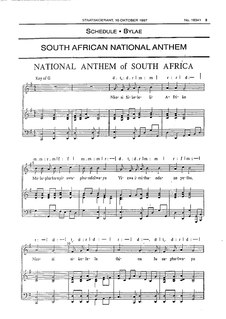
The national anthem of South Africa was adopted in 1997 and is a hybrid song combining new English lyrics with extracts of the 19th century hymn "Nkosi Sikelel' iAfrika" and the Afrikaans song "Die Stem van Suid-Afrika", which was formerly used as the South African national anthem from the late 1930s to the mid-1990s. The committee responsible for this new composition included Anna Bender, Elize Botha, Richard Cock, Dolf Havemann (Secretary), Mzilikazi Khumalo (Chairman), Masizi Kunene, John Lenake, Fatima Meer, Khabi Mngoma, Wally Serote, Johan de Villiers, and Jeanne Zaidel-Rudolph.
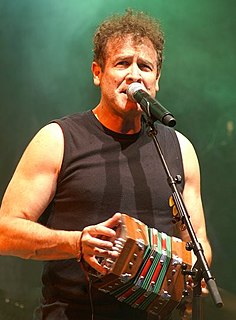
Jonathan Paul Clegg, OBE, OIS was a South African musician, singer-songwriter, dancer, anthropologist and anti-apartheid activist, some of whose work was in musicology focused on the music of indigenous South African peoples. His band Juluka began as a duo with Sipho Mchunu, and was the first group in the South African apartheid-era with a white man and a black man. The pair performed and recorded, later with an expanded lineup.

The South African music scene includes both popular (jive) and folk forms like Zulu isicathamiya singing and harmonic mbaqanga. South Africa has a global music industry.
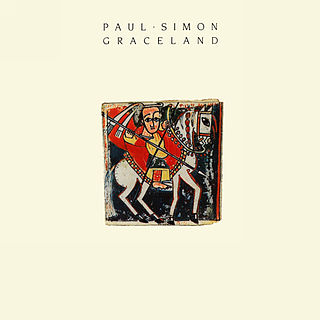
Graceland is the seventh solo studio album by American singer-songwriter Paul Simon. It was produced by Simon, engineered by Roy Halee and released on August 25, 1986, by Warner Bros. Records.
Kwaito is a music genre that emerged in Soweto, Johannesburg, South Africa, during the 1990s. It is a variant of house music featuring the use of African sounds and samples. Typically at a slower tempo range than other styles of house music, Kwaito often contains catchy melodic and percussive loop samples, deep bass lines, and vocals. Despite its similarities to hip hop music, Kwaito has a distinctive manner in which the lyrics are sung, rapped and shouted.

"Nkosi Sikelel' iAfrika" is a Christian hymn originally composed in 1897 by Enoch Sontonga, a Xhosa clergyman at a Methodist mission school near Johannesburg. The song became a pan-African liberation song and versions of it were later adopted as the national anthems of five countries in Africa including Zambia, Tanzania, Namibia and Zimbabwe after independence. Zimbabwe and Namibia have since adopted new compositions for their national anthems. The song's melody is currently used as the national anthem of Tanzania and the national anthem of Zambia. In 1994, Nelson Mandela decreed that the verse be embraced as a joint national anthem of South Africa, with a revised version including elements of "Die Stem" adopted in 1997.

Zenzile Miriam Makeba, nicknamed Mama Africa, was a South African singer, songwriter, actress, United Nations goodwill ambassador, and civil rights activist. Associated with musical genres including Afropop, jazz, and world music, she was an advocate against apartheid and white-minority government in South Africa.
Toyi-toyi is a Southern African dance originally created in South Africa by the African National Congress (ANC) forces that has long been used in political protests in South Africa.

Apartheid was a system of institutionalised racial segregation that existed in South Africa and South West Africa from 1948 until the early 1990s. Apartheid was characterised by an authoritarian political culture based on baasskap, which ensured that South Africa was dominated politically, socially, and economically by the nation's minority white population. According to this system of social stratification, white citizens had the highest status, followed by Asians and Coloureds, then black Africans. The economic legacy and social effects of apartheid continue to the present day.
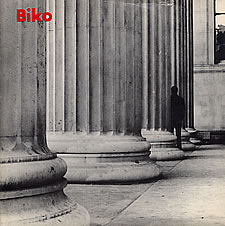
"Biko" is an anti-apartheid protest song by English rock musician Peter Gabriel. It was released by Charisma Records as a single from Gabriel's eponymous third album in 1980.

Savuka, occasionally referred to as Johnny Clegg & Savuka, was a multi-racial South African band formed in 1986 by Johnny Clegg after the disbanding of Juluka. Savuka's music blended traditional Zulu musical influences with Celtic music and Rock music that had a cross-racial appeal in South Africa. Their lyrics were often bilingual in English and Zulu and they wrote several politically charged songs, particularly related to apartheid. Some better-known Savuka songs include "Asimbonanga", and "Third World Child", from their 1987 album Third World Child. Band percussionist Dudu Zulu was killed in 1992; their song "The Crossing" was a tribute to him.
Tsotsitaal is a vernacular derived from a variety of mixed languages mainly spoken in the townships of Gauteng province, but also in other agglomerations all over South Africa. Tsotsi is a Sesotho, Pedi or Tswana slang word for a "thug" or "robber" or "criminal", possibly from the verb "ho lotsa" "to sharpen", whose meaning has been modified in modern times to include "to con"; or from the tsetse fly, as the language was first known as Flytaal, although flaai also means "cool" or "street smart". The word taal in Afrikaans means "language".

Amandla!: A Revolution in Four-Part Harmony is a 2002 documentary film depicting the struggles of black South Africans against the injustices of Apartheid through the use of music. The film takes its name from the Zulu and Xhosa word amandla, which means power.
Boom Shaka were a pioneering kwaito music group from South Africa, consisting of Junior Sokhela, Lebo Mathosa, Theo Nhlengethwa and Thembi Seete. Their first album was produced in 1994. Boom Shaka's first single "It's About Time" was released in 1993. Boom Shaka became one of the most successful bands of the mid-1990s in South Africa and their music became the soundtrack for many young people in the newly democratic South Africa. Boom Shaka was able to break into the international market and achieved success outside of South Africa in London among other places.
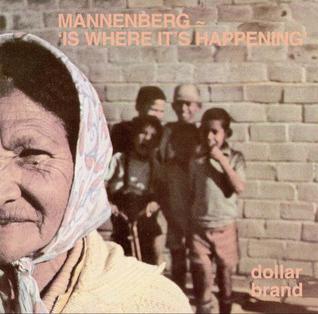
"Mannenberg" is a Cape jazz song by South African musician Abdullah Ibrahim, first recorded in 1974. Driven into exile by the apartheid government, Ibrahim had been living in Europe and the United States during the 1960s and '70s, making brief visits to South Africa to record music. After a successful 1974 collaboration with producer Rashid Vally and a band that included Basil Coetzee and Robbie Jansen, Ibrahim began to record another album with these three collaborators and a backing band assembled by Coetzee. The song was recorded during a session of improvisation, and includes a saxophone solo by Coetzee, which led to him receiving the sobriquet "Manenberg".
"Homeless" is a 1986 song by Paul Simon and Ladysmith Black Mambazo lead singer Joseph Shabalala.
"Scatterlings of Africa" is a 1982 song by the South African band Juluka, first released on their 1982 album Scatterlings. It was re-released in 1987 by Juluka's successor band Savuka on Third World Child. The song was a commercial success, charting in France and the United Kingdom. Its lyrics explore the "myriad dislocations" experienced by South Africa. The rousing and upbeat music incorporated Zulu influences. The song introduced the music of Johnny Clegg, the cofounder of Juluka and Savuka, to Western audiences.
"Bring Him Back Home ", also known as "Bring Him Back Home", is an anthemic anti-apartheid protest song written by South African musician Hugh Masekela. It was released as the first track of his 1987 album Tomorrow. It was recorded in 1986 when Masekela was in exile from the apartheid regime of South Africa. The melody of the song is buoyant, containing a number of powerful chords and trumpet riffs. The lyrics of the song demand the release of Black South African leader Nelson Mandela, who had been imprisoned by the white South African government on Robben Island since 1962. The song became enormously popular, and turned into an unofficial anthem of the anti-apartheid movement. It became one of Masekela's most performed live songs. It was later used as a part of the official soundtrack to the documentary film Amandla!: A Revolution in Four-Part Harmony. The song was included in the 1994 live album Hope and in the 2001 collection Grazing in the Grass: The Best of Hugh Masekela, released by Columbia Records.

The apartheid regime in South Africa began in 1948 and lasted until 1994. It involved a system of institutionalized racial segregation and white supremacy, and placed all political power in the hands of a white minority. Opposition to apartheid manifested in a variety of ways, including boycotts, non-violent protests, and armed resistance. Music played a large role in the movement against apartheid within South Africa, as well as in international opposition to apartheid. The impacts of songs opposing apartheid included raising awareness, generating support for the movement against apartheid, building unity within this movement, and "presenting an alternative vision of culture in a future democratic South Africa."